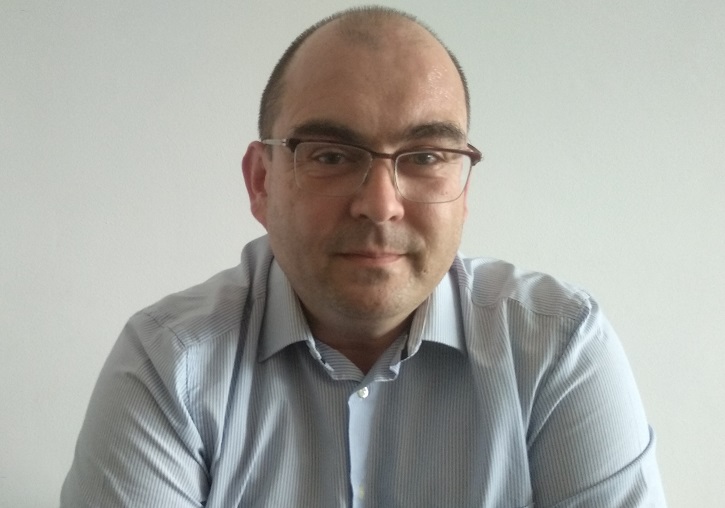The researcher Jesús Rodríguez of the University of Valencia participates in a verification study of a germicidal robot
- Scientific Culture and Innovation Unit
- June 4th, 2020

The Ramón y Cajal researcher of the University of Valencia, Jesús Rodríguez, has collaborated in the scientific verification process of the CECOTEC Conga Apolo robot using a bacteriophage virus together with the Microbiological Institute of the University of Salamanca and the company Arborea.
“The treatment with the robot has significantly reduced the amount of virus, with elimination percentages ranging from 99.96% on the desk, to 100% on the side table and the floor”, explains Jesús Rodríguez. The Conga Apolo germicidal robot uses low-power UV-C and an ozone mist below 0.1 mg / m3, just amounts to disinfect effectively without damaging health and without the presence of qualified personnel. The Valencian company CECOTEC highlights that it is a robot that disinfects all types of businesses, facilities or work centres with the maximum guarantees and that it does it quickly, up to 75m2 in an hour, which allows the rapid reuse of spaces in a minimum time.
Human viruses can only be used in research inside laboratory cabinets with a security level 2 for potentially pathogenic microorganisms, that is why Jesús Rodríguez proposed to use as a model organism a bacterial or bacteriophage virus (specifically bacteriophage m13, that especially infects Escherichia coli) and that it is harmless to human health and, therefore, can be used with greater safety.
For the verification study, the research team deposited large amounts of the bacteriophage virus on different surfaces (floors, tables, side tables and switches) and checked whether or not the CECOTEC robot was capable of inactivating the viruses. After the robot passed, samples were taken from the areas where the viruses had been deposited and in the laboratory it was checked whether the viruses had the capacity to continue infecting using the plating technique and the phage plaque counting technique, that is, the areas formed on a culture of bacteria in a Petri dish that are produced by the activity of bacteriophages. The result of the study will show that the robot is capable of reducing the number of plaques, that is, the number of infective viruses, by more than 99.9%, compared to the sample prior to the passage of the robot.
Jesús Rodríguez Díaz is a Ramón y Cajal researcher in the Department of Microbiology of the Faculty of Medicine of the University of Valencia and is part of the research team for gastrointestinal infections at the University of Valencia and is also a researcher at INCLIVA. He recently carried out a serological study with rotavirus, one of the viruses that causes infectious diarrhea, and is responsible for the development of the vaccine against COVID-19 for which the University of Valencia has registered a patent application.
















